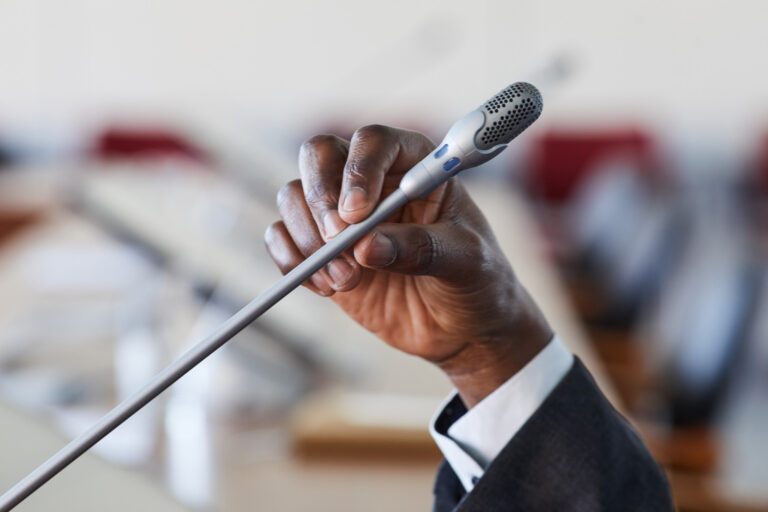Lessons in Connection from the Front Row of Democracy
The town hall buzzed with the hum of mismatched plastic chairs, impatient murmurs, and the low whirr of a ceiling fan struggling to matter. The Honourable was late.
A boy in a faded jersey leaned against the window. “You think he’ll come this time?” he asked no one in particular.
A woman fanned herself with a voter registration slip. “He’ll come,” she said flatly. “Election is near. Even ghosts attend community meetings in election season.”
Just then, Honourable Musa stepped in. Starched white kaftan. Freshly shaved head. Smile tight at the corners.
“My people, I greet you all,” he began, gripping the microphone like it was a staff of office. “Today, I have come to give account…”
Someone coughed. Another yawned.
And in that instant, he knew. They weren’t here for a speech. They were here for sincerity.
And they were waiting to see if he had any.
In the theatre of public engagement, trust is not given freely. It is won, often in the opening line.
Every legislator who walks into a room filled with constituents must understand this: people are listening with their arms folded and their minds half-closed. Not because they are hostile, but because they are tired. They have heard it all before.
This is where connection matters more than charisma.
And one of the fastest bridges to connection? Humour.
Not clownishness. Not comedy. But that one line that makes a weary crowd chuckle because it is true. Because it is familiar. Because it says, “I get it. I live in the same Nigeria as you.”
Years ago, I took a media training course in the Netherlands. Our facilitator walked in and, without a warm-up, declared, “I know you’re already judging me.”
She rattled off a list of assumptions we might hold about her: her accent, her nationality, her gender. It was honest. It was bold.
It was also… distracting.
Her strategy became the main topic of conversation after the session, not her material. She had tried to pre-empt judgment, but in doing so, she spotlighted it. She tried to seize control of the room by naming her insecurities, but instead, she handed us a checklist.
I call it subtle audience subjugation, that moment when a speaker tries to manage perception instead of earning attention.
In governance, this rarely works.
People don’t want a performance. They want presence. They want to know you see them, hear them, and possibly even suffer like them. Because once they feel understood, they might give you the thing every politician secretly craves: benefit of the doubt.
So what works?
Start where your people are. Mention the broken borehole, the teacher strike, the price of onions. Joke gently about the last town hall where the mic died after ten minutes. Remind them that you too were once stuck on the road because your driver forgot to fuel the car.
When you open with relatability, you shift the dynamic. You’re no longer the high table. You’re the neighbour with a mic.
But beware. Humour is not a magic trick. It must never be used to deflect accountability or mock real pain. It is not an escape hatch. It is an entry point.
Use it to soften edges, not erase issues. To humanise the conversation, not hijack it.
As Honourable Musa stood before his constituents, he put down the notes he had over-prepared. He looked at the room, the furrowed brows, the side-eyes, the folded arms.
Then he said, “Let me confess first. This fan is working harder than some of us in Abuja.”
A pause.
Laughter.
Then silence.
Then a man in the back said, “Oya talk well now. We dey listen.”
And just like that, the room shifted.
Real governance does not begin when the camera starts rolling. It begins when the people lean in.
So, dear legislator, the next time you walk into a room filled with folded arms and furrowed brows, remember this:
You don’t have to impress.
You just have to connect.





